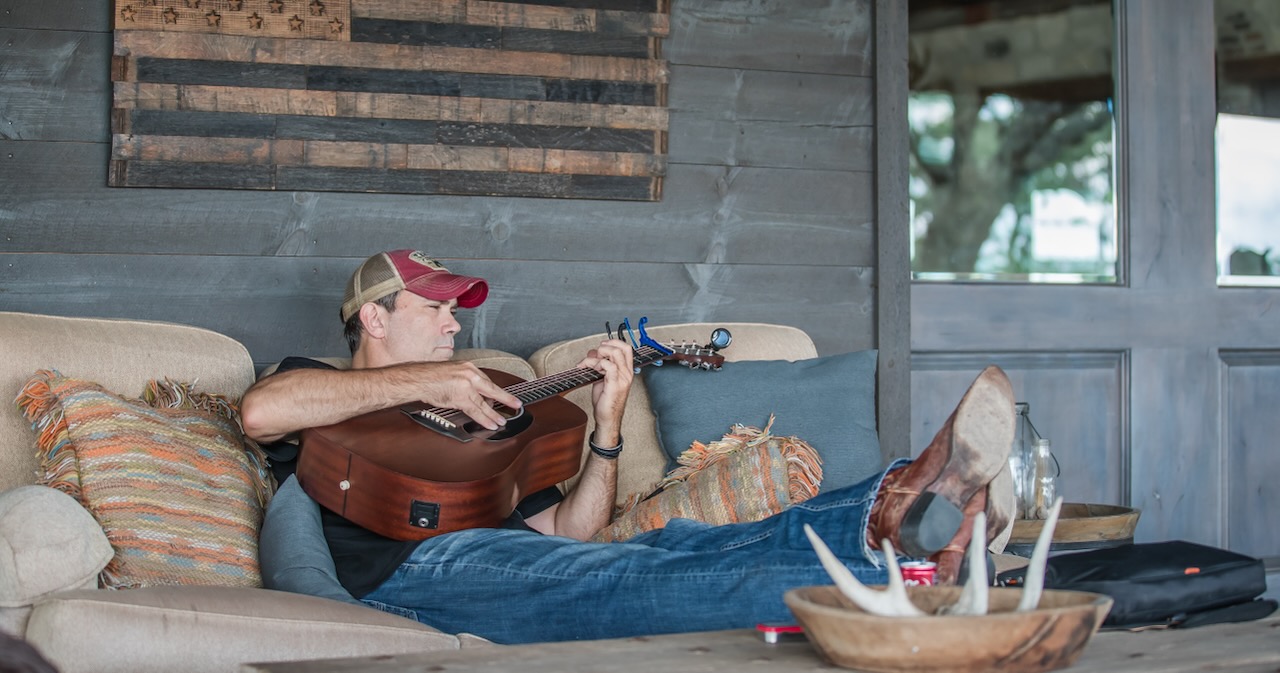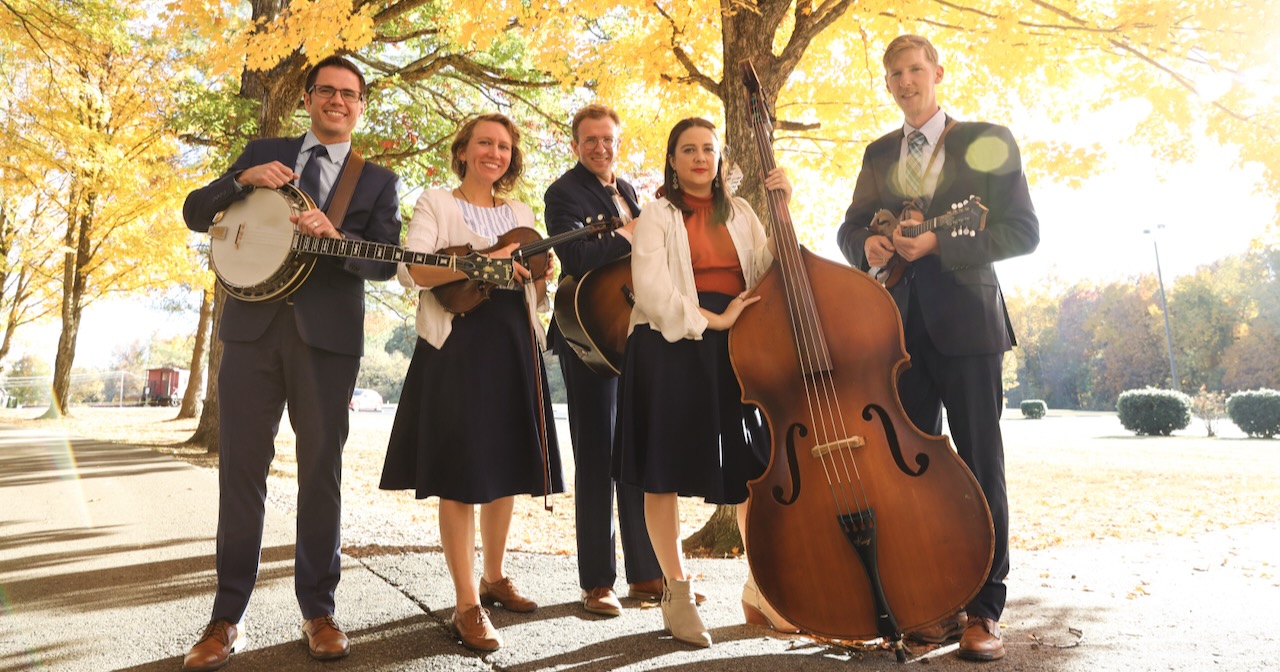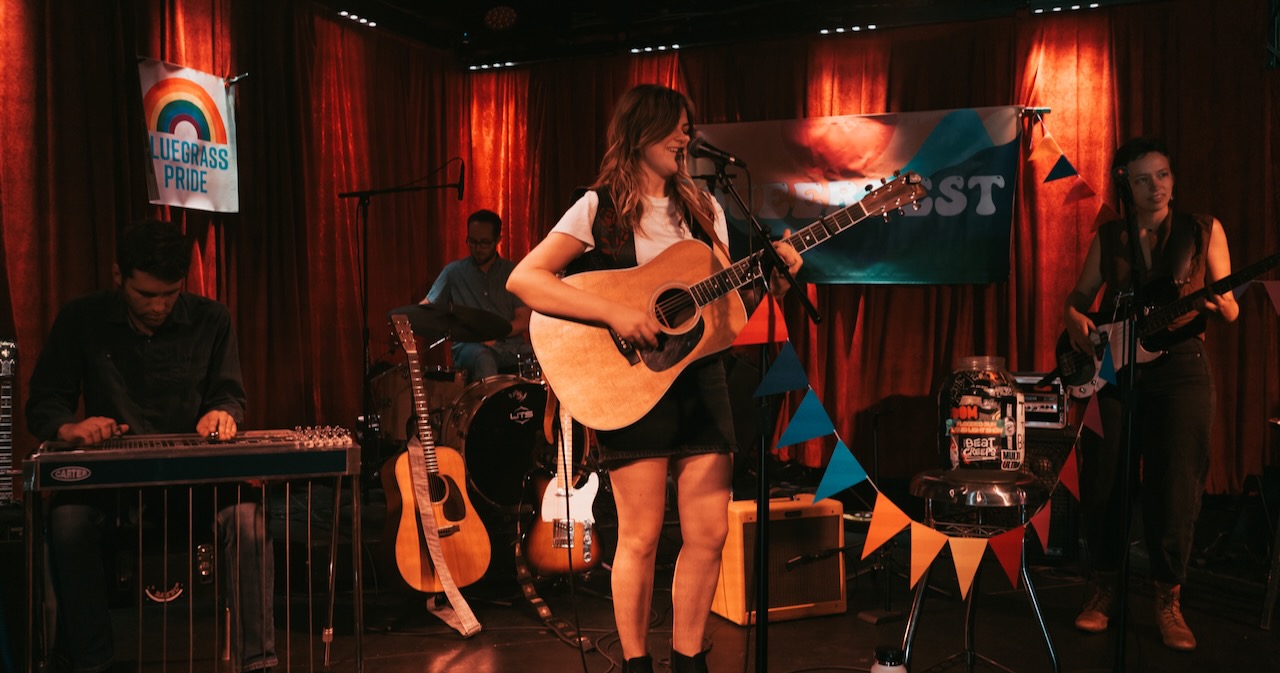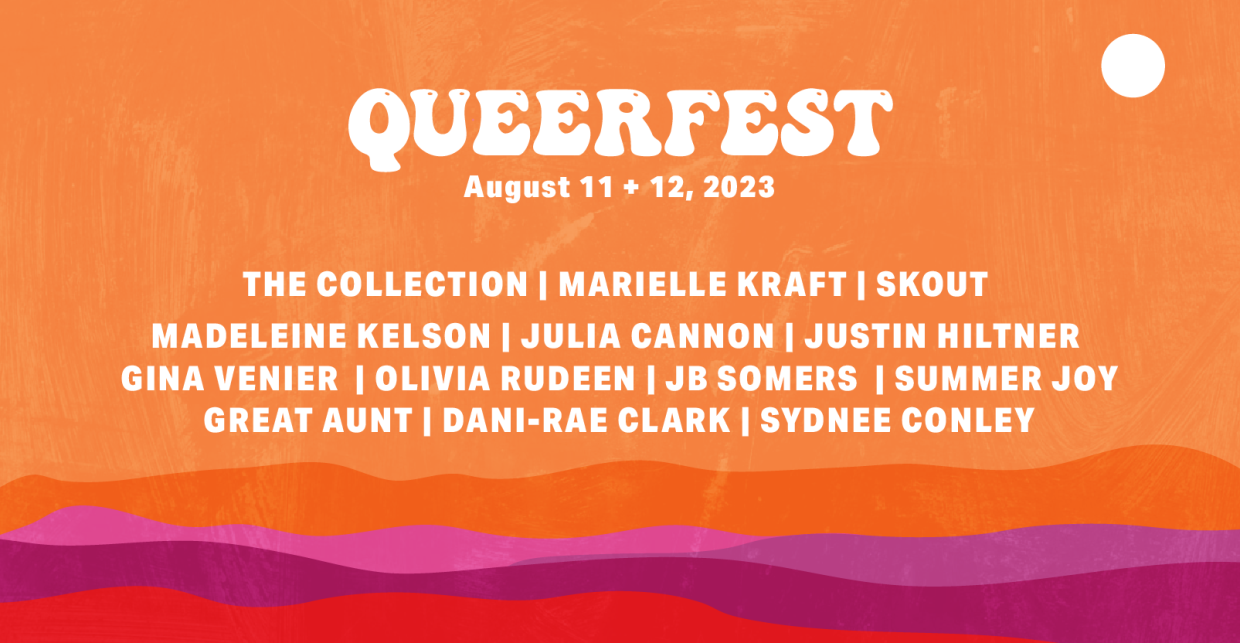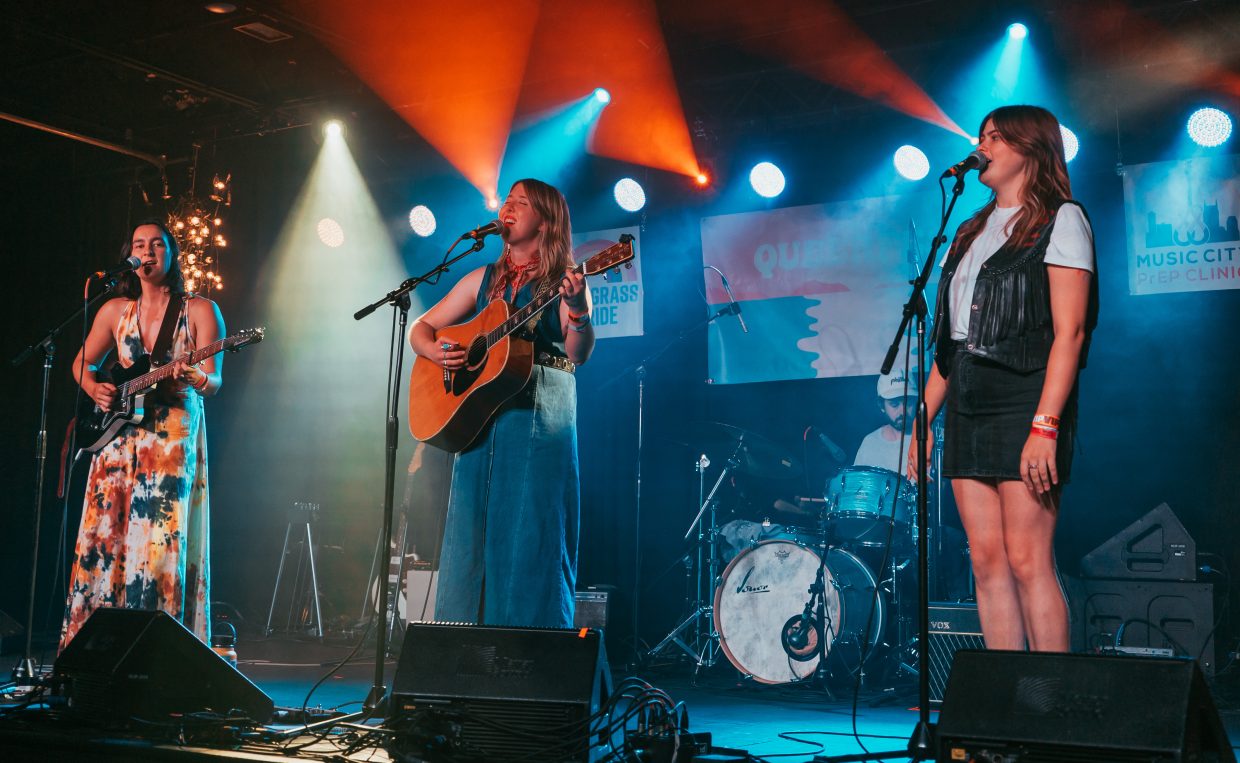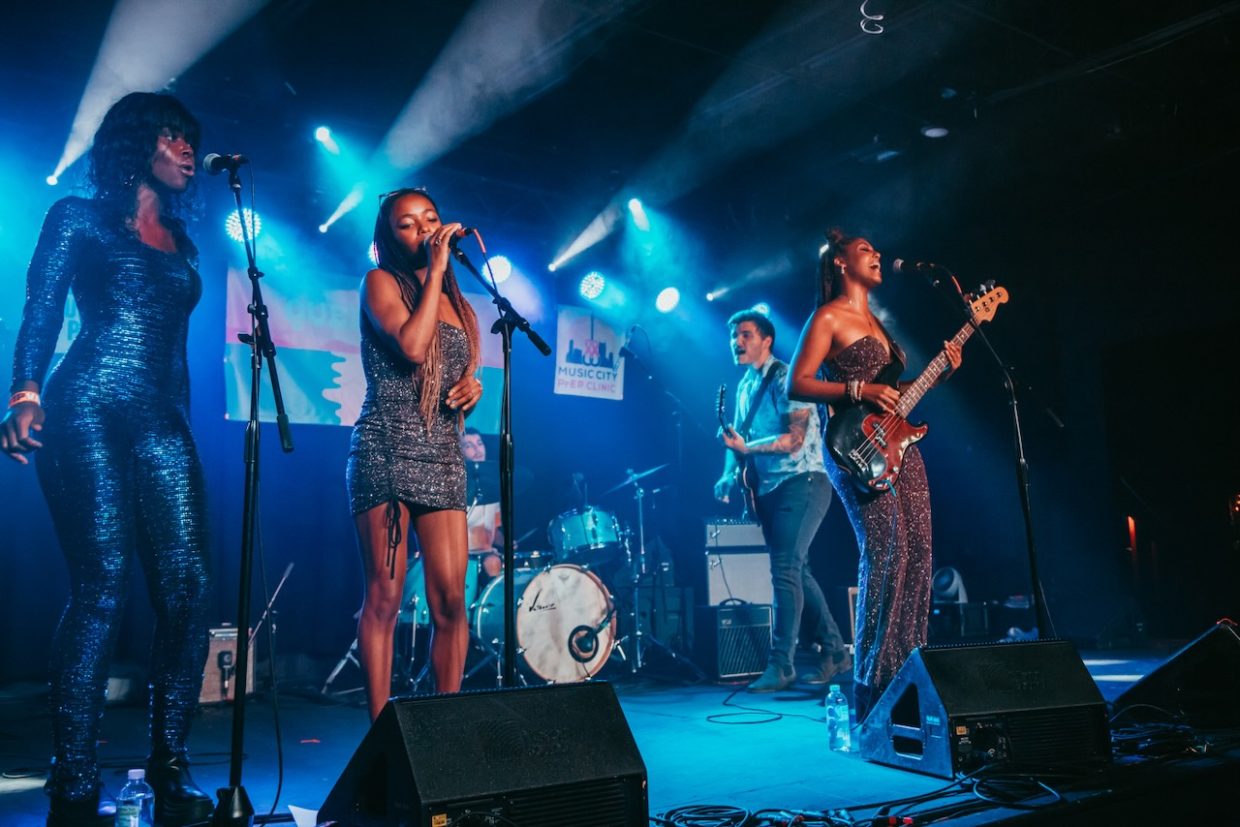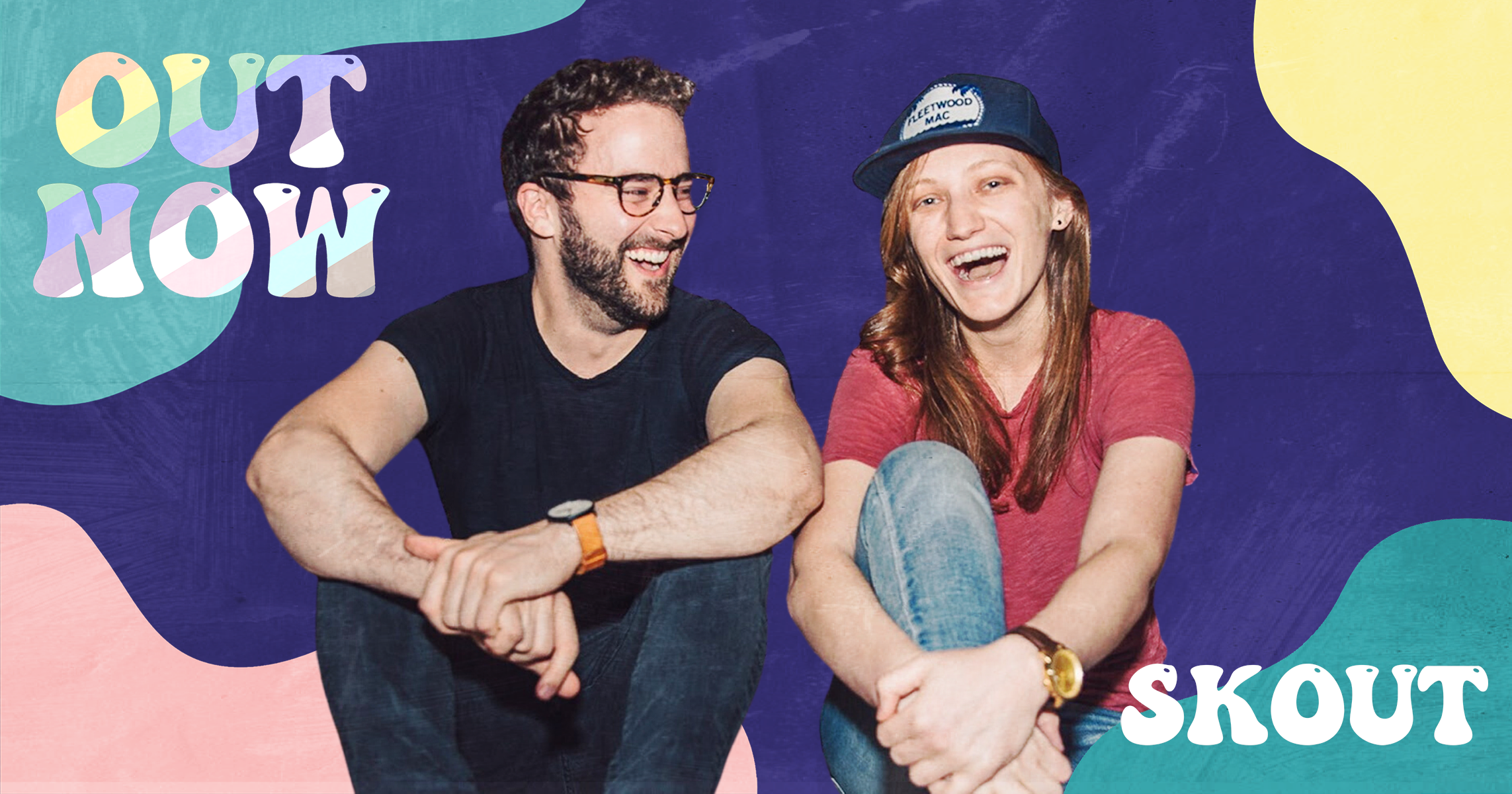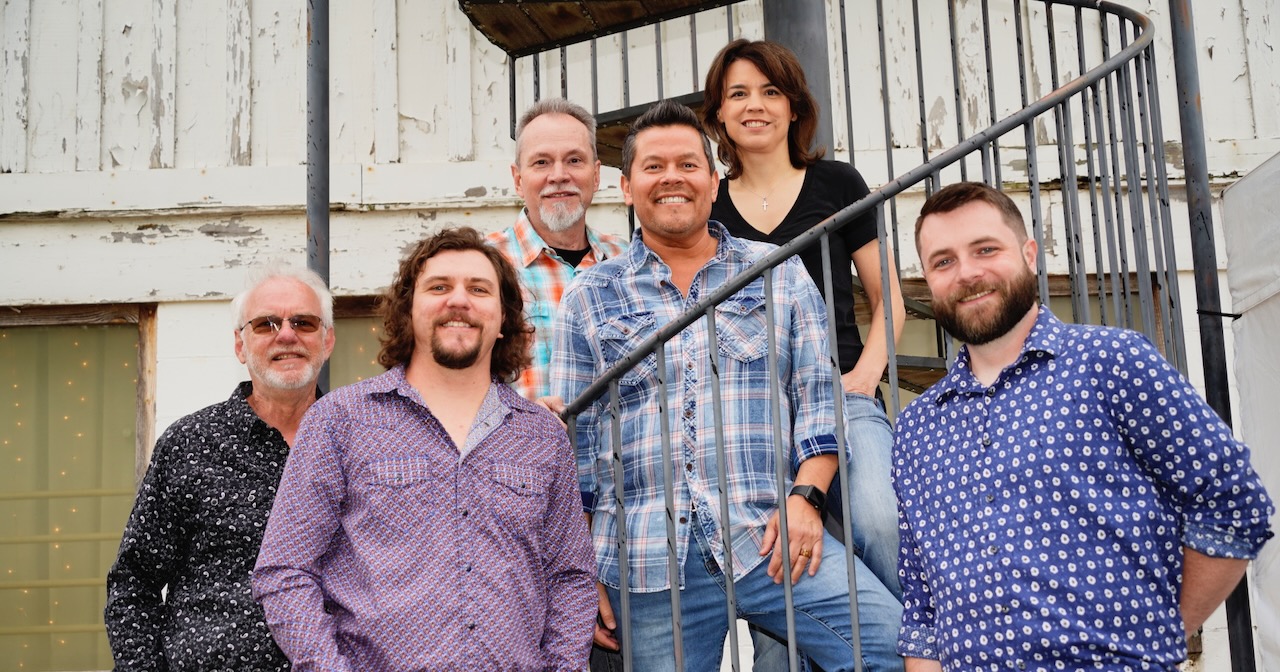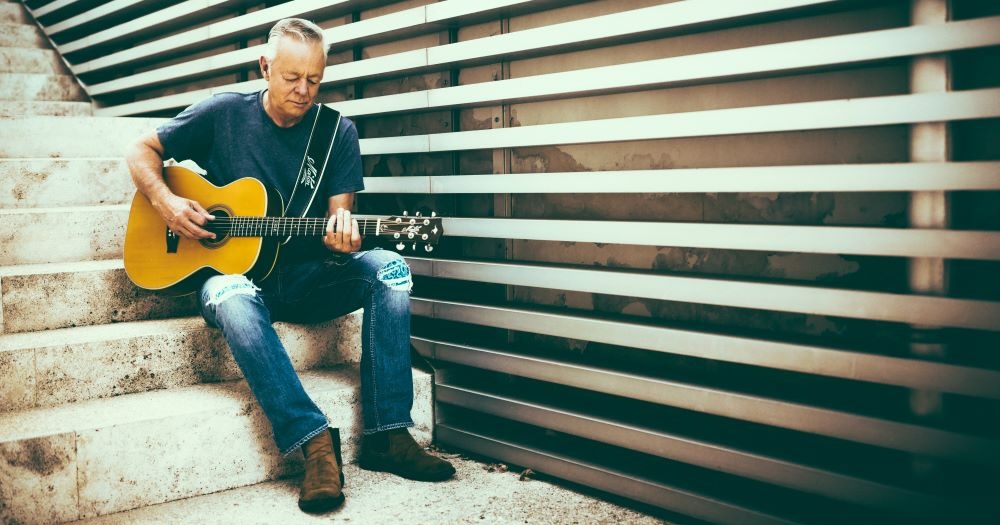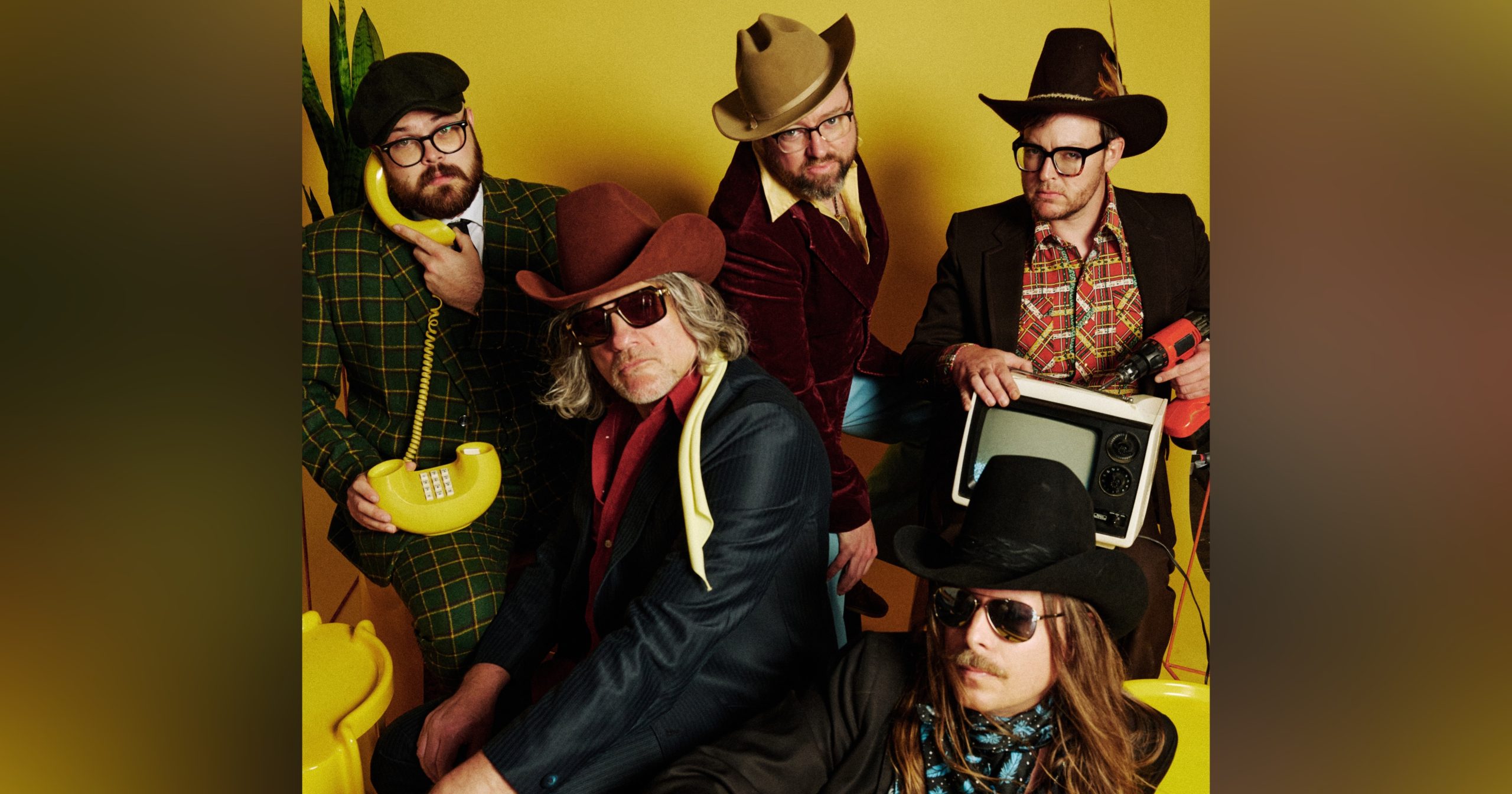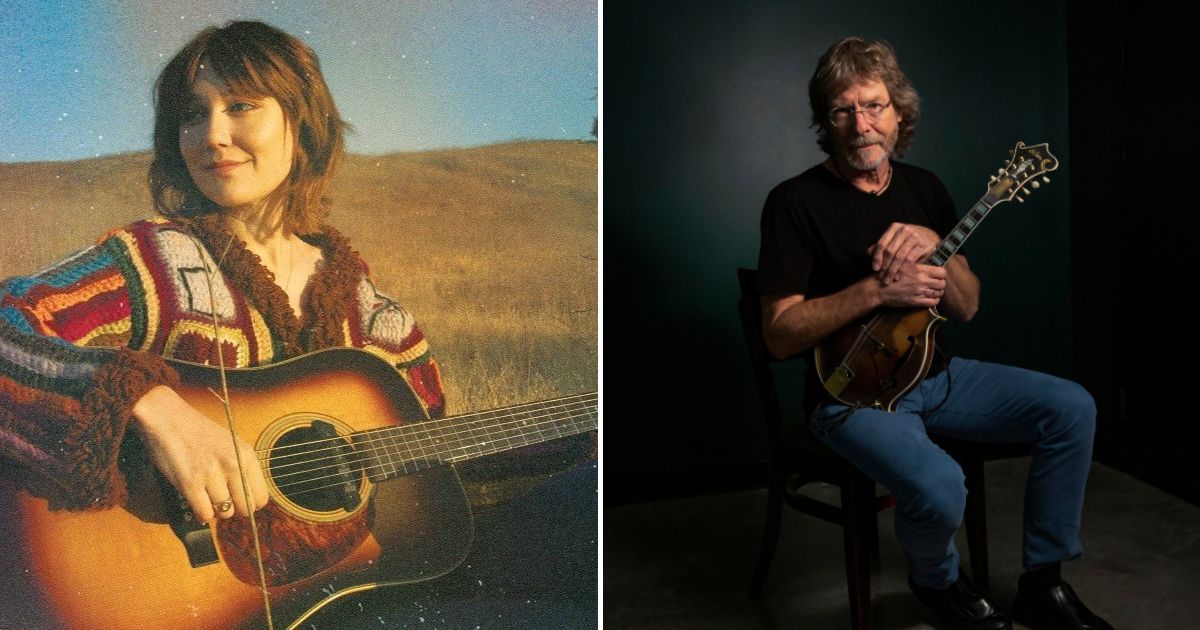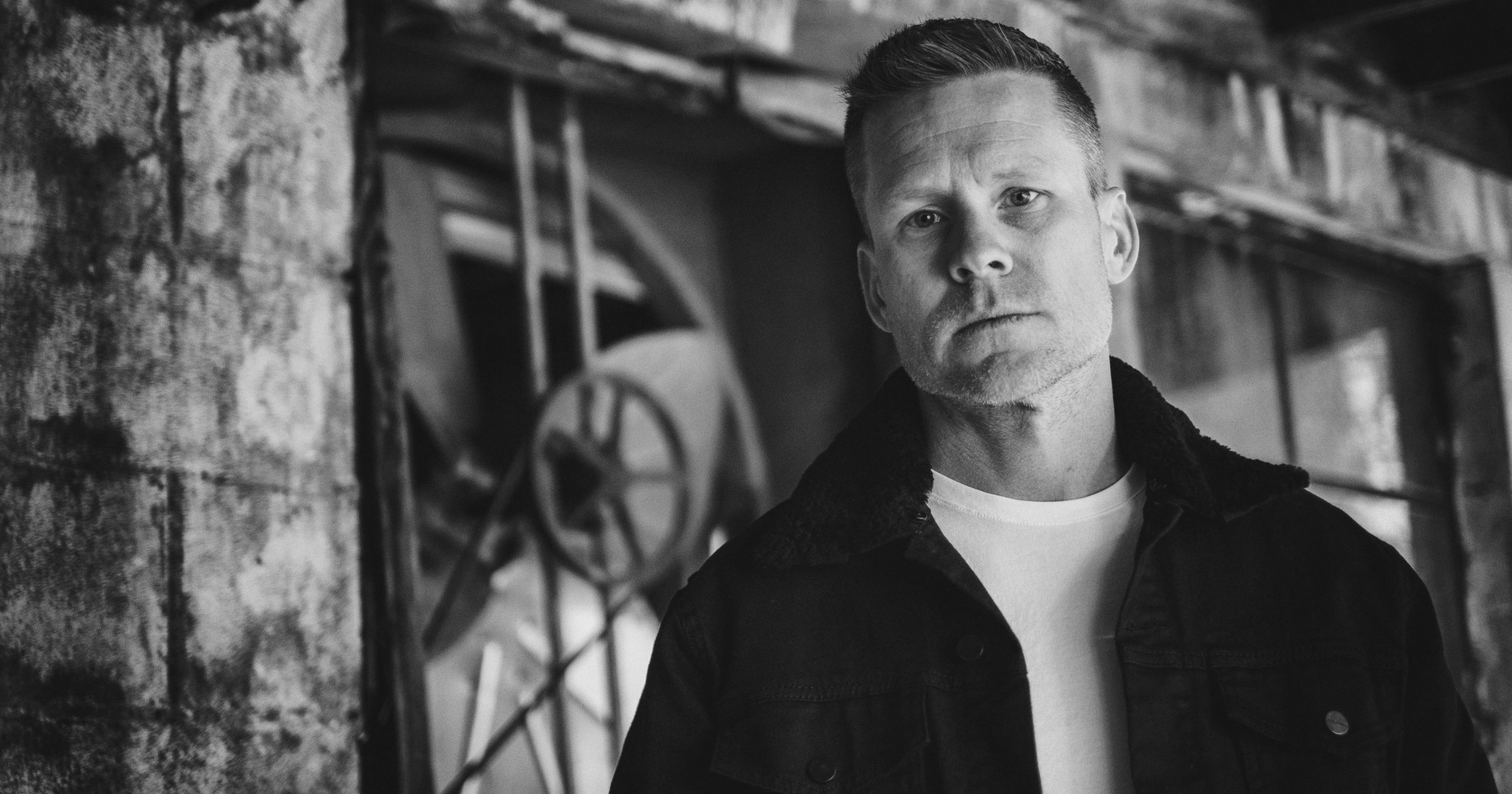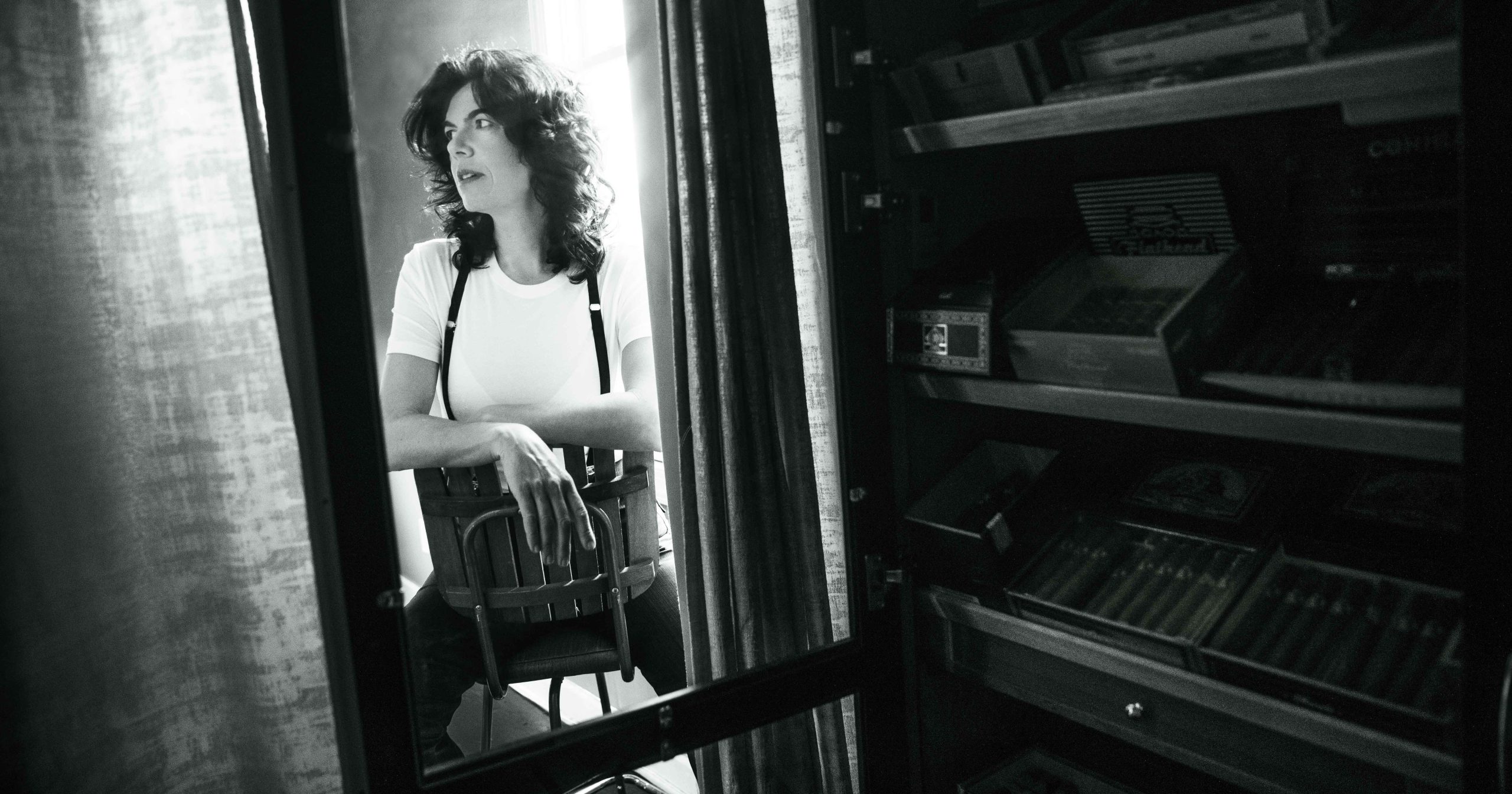The International Bluegrass Music Association announced this year’s nominees and recipients for the 34th Annual IBMA Bluegrass Music Awards today in downtown Nashville at SiriusXM’s Music City Theater. The announcement ceremony included live performances by nominees the Lonesome River Band and Sam Bush, who will be inducted into the Bluegrass Music Hall of Fame at the IBMA Awards show in Raleigh, North Carolina, this September.
Additional inductees into the Hall of Fame, which is housed at the Bluegrass Music Hall of Fame & Museum in Owensboro, Kentucky, include first-generation bluegrasser and country chart-topper Wilma Lee Cooper and an innovator and virtuoso who has expanded the borders of bluegrass and acoustic music throughout his career, David Grisman.
Recipients of the Distinguished Achievement Awards – IBMA’s highest honor outside of Hall of Fame induction – were also announced, highlighting the significant contributions of artists, musicians, and organizations such as Red Wine (Italy’s foremost bluegrass group), banjo player and band leader Terry Baucom, author and musician Tom Ewing, promoter and organizer Carl Goldstein, and media outlet and online hub BGS, The Bluegrass Situation.
“We are so honored and humbled by this recognition,” says BGS managing editor Justin Hiltner. “Bluegrass is all about community, and to have our community – the genre that built us – recognize our efforts in this way means the world. What Ed [Helms] and Amy [Reitnouer Jacobs] have created and brought all of us into is something truly special. Thank you to IBMA, the organization and its membership, for this award.” (Read more here.)
In the Instrumentalist, Recordings, and Artists’ categories, Molly Tuttle & Golden Highway, Billy Strings (and his father, Terry Barber), Michael Cleveland, Del McCoury Band, and Sam Bush Band lead the nominations. View the full list below and make plans now to attend the IBMA Awards Show in Raleigh, North Carolina, as part of IBMA’s World of Bluegrass conference on Thursday, September 28, 2023.
ENTERTAINER OF THE YEAR:
Appalachian Road Show
Billy Strings
Del McCoury Band
Molly Tuttle & Golden Highway
The Po’ Ramblin’ Boys
VOCAL GROUP OF THE YEAR:
Authentic Unlimited
Balsam Range
Blue Highway
Del McCoury Band
Sister Sadie
INSTRUMENTAL GROUP OF THE YEAR:
Billy Strings
Michael Cleveland & Flamekeeper
The Infamous Stringdusters
Molly Tuttle & Golden Highway
The Travelin’ McCourys
SONG OF THE YEAR:
“Blue Ridge Mountain Baby”
Artist: Appalachian Road Show
Songwriters: Barry Abernathy/Jim VanCleve
Label: Billy Blue Records
Producer: Appalachian Road Show
“Crooked Tree”
Artist: Molly Tuttle & Golden Highway
Songwriters: Molly Tuttle/Melody Walker
Label: Nonesuch Records
Producers: Jerry Douglas and Molly Tuttle
“Diane”
Artist: Sister Sadie
Songwriters: Jeffrey Nath Bhasker/Samuel Tyler Johnson/Cameron Marvel Ochs
Label: Mountain Home
Producer: Sister Sadie
“Heyday”
Artist: Lonesome River Band
Songwriters: Barry Huchens/Will Huchens
Label: Mountain Home Music Company
Producer: Lonesome River Band
“Power of Love”
Artist: Rick Faris
Songwriters: Johnny Colla/Huey Lewis/Christopher Hayes
Label: Dark Shadow Recording
Producer: Stephen Mougin
ALBUM OF THE YEAR:
Crooked Tree
Artist: Molly Tuttle & Golden Highway
Label: Nonesuch Records
Producer: Jerry Douglas and Molly Tuttle
Lovin’ of the Game
Artist: Michael Cleveland
Label: Compass Records
Producers: Jeff White, Michael Cleveland, and Sean Sullivan
Lowdown Hoedown
Artist: Jason Carter
Label: Fiddle Man Records
Producers: Jason Carter and Brent Truitt
Me/And/Dad
Artist: Billy Strings and Terry Barber
Label: Rounder Records
Producers: Billy Strings and Gary Paczosa
Radio John: The Songs of John Hartford
Artist: Sam Bush
Label: Smithsonian Folkways
Producer: Sam Bush
GOSPEL RECORDING OF THE YEAR:
“The Glory Road”
Artist: Joe Mullins & The Radio Ramblers
Songwriters: Paul Martin/Harry Stinson/Marty Stuart
Label: Billy Blue Records
Producers: Joe Mullins and Adam McIntosh
“Jordan”
Artist: Darin & Brooke Aldridge with Ricky Skaggs, Mo Pitney and Mark Fain
Songwriter: Fred Rich
Label: Billy Blue Records
Producer: Darin Aldridge and Mark Fain
“The Scarlet Red Lines”
Artist: Larry Sparks
Songwriter: Daniel Crabtree
Label: Rebel Records
Producer: Larry Sparks
“Take a Little Time for Jesus”
Artist: Junior Sisk
Songwriter: David Marshall
Label: Mountain Fever Records
Producers: Junior Sisk and Aaron Ramsey
“Tell Me the Story of Jesus”
Artist: Becky Buller with Vince Gill and Ricky Skaggs
Songwriter: Fanny Crosby, arrangement by Becky Buller
Label: Dark Shadow Recording
Producer: Stephen Mougin
INSTRUMENTAL RECORDING OF THE YEAR:
“Contact”
Artist: Michael Cleveland with Cody Kilby, Barry Bales, and Béla Fleck
Songwriter: Michael Cleveland
Label: Compass Records
Producer: Jeff White, Michael Cleveland, and Sean Sullivan
“Foggy Morning Breaking”
Artist: Alison Brown with Steve Martin
Songwriters: Alison Brown/Steve Martin
Label: Compass Records
Producers: Alison Brown and Garry West
“Gold Rush”
Artist: Scott Vestal’s Bluegrass 2022
Songwriter: Bill Monroe
Label: Pinecastle Records
Producer: Scott Vestal
“Kissimmee Kid”
Artist: Jason Carter
Songwriter: Vassar Clements
Label: Fiddle Man Records
Producers: Jason Carter and Brent Truitt
“Scorchin’ the Gravy”
Artist: Frank Solivan & Dirty Kitchen
Songwriter: Frank Solivan
Label: Compass Records
Producer: Frank Solivan
NEW ARTIST OF THE YEAR:
Authentic Unlimited
East Nash Grass
Henhouse Prowlers
The Tennessee Bluegrass Band
Tray Wellington
COLLABORATIVE RECORDING OF THE YEAR:
“Alberta Bound”
Artist: Special Consensus with Ray Legere, John Reischman, Tisha Gagnon, Claire Lynch, Pharis & Jason Romero, Patrick Sauber
Songwriter: Gordon Lightfoot
Label: Compass Records
Producer: Alison Brown
“Big Mon”
Artist: Andy Leftwich with Sierra Hull
Songwriter: Bill Monroe
Label: Mountain Home Music Company
Producer: Andy Leftwich
“Foggy Morning Breaking”
Artist: Alison Brown with Steve Martin
Songwriter: Alison Brown/Steve Martin
Label: Compass Records
Producer: Alison Brown and Garry West
“For Your Love”
Artist: Michael Cleveland with Billy Strings and Jeff White
Songwriter: Joe Ely
Label: Compass Records
Producer: Jeff White, Michael Cleveland, and Sean Sullivan
“From My Mountain (Calling You)”
Artist: Peter Rowan with Molly Tuttle and Lindsay Lou
Songwriter: Peter Rowan
Label: Rebel Records
Producer: Peter Rowan
MALE VOCALIST OF THE YEAR:
Greg Blake
Del McCoury
Danny Paisley
Larry Sparks
Dan Tyminski
FEMALE VOCALIST OF THE YEAR:
Brooke Aldridge
Dale Ann Bradley
Jaelee Roberts
Molly Tuttle
Rhonda Vincent
BANJO PLAYER OF THE YEAR:
Kristin Scott Benson
Alison Brown
Béla Fleck
Ned Luberecki
Scott Vestal
BASS PLAYER OF THE YEAR:
Mike Bub
Todd Phillips
Missy Raines
Mark Schatz
Vickie Vaughn
FIDDLE PLAYER OF THE YEAR:
Jason Carter
Michael Cleveland
Stuart Duncan
Bronwyn Keith-Hynes
Deanie Richardson
RESOPHONIC GUITAR PLAYER OF THE YEAR:
Jerry Douglas
Andy Hall
Rob Ickes
Matt Leadbetter
Justin Moses
GUITAR PLAYER OF THE YEAR:
Chris Eldridge
Trey Hensley
Billy Strings
Bryan Sutton
Molly Tuttle
MANDOLIN PLAYER OF THE YEAR:
Alan Bibey
Jesse Brock
Sam Bush
Sierra Hull
Ronnie McCoury
DISTINGUISHED ACHIEVEMENT AWARD RECIPIENTS:
Terry Baucom
The Bluegrass Situation
Tom Ewing
Carl Goldstein
Red Wine
BLUEGRASS MUSIC HALL OF FAME INDUCTEES:
Sam Bush
Wilma Lee Cooper
David Grisman
Photo of Sam Bush by Jeff Fasano; photo of Molly Tuttle by Samantha Muljat.
